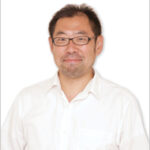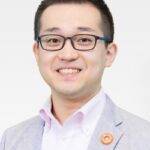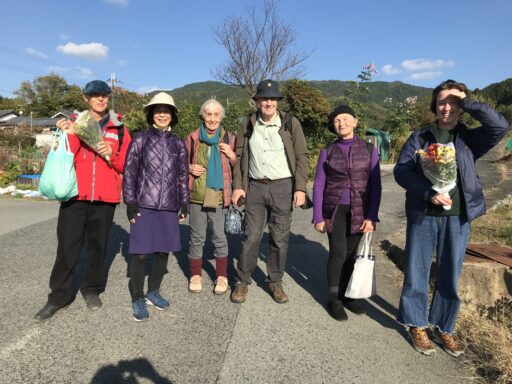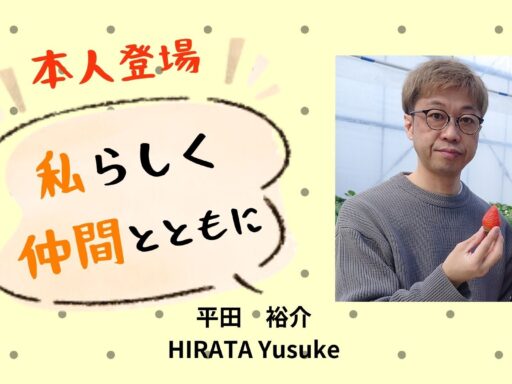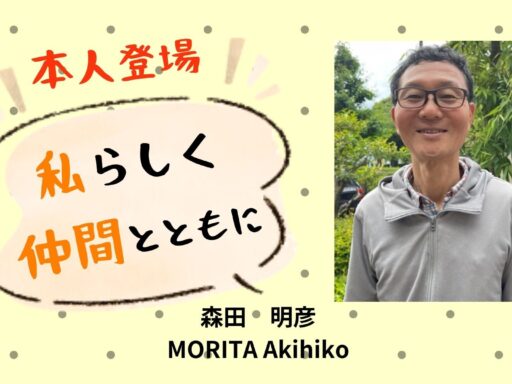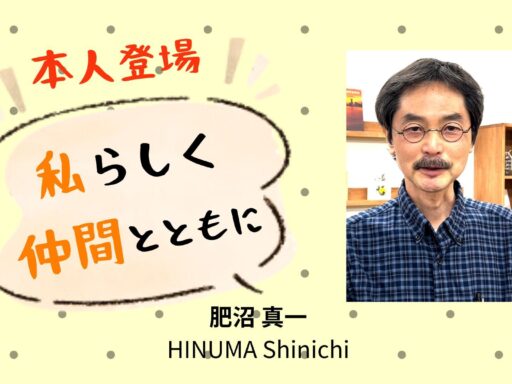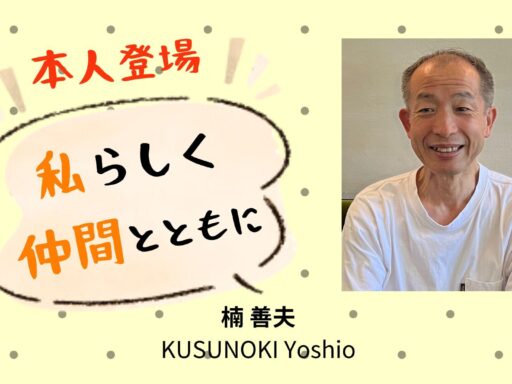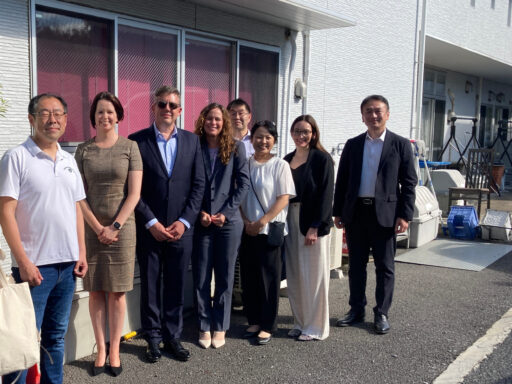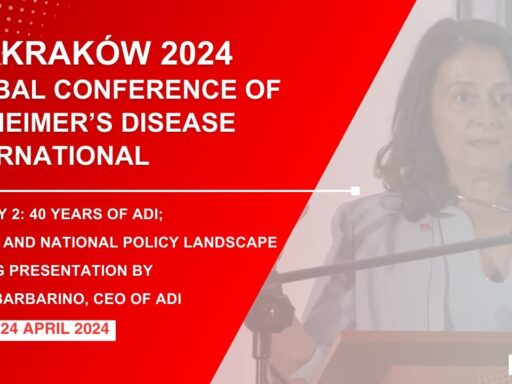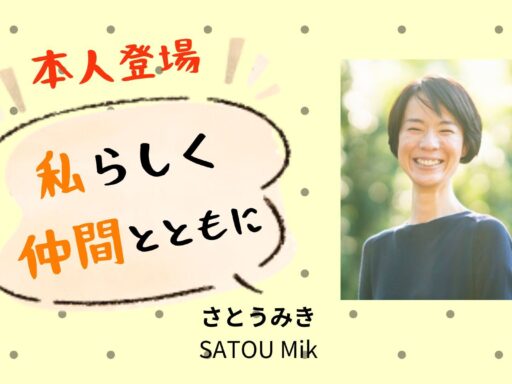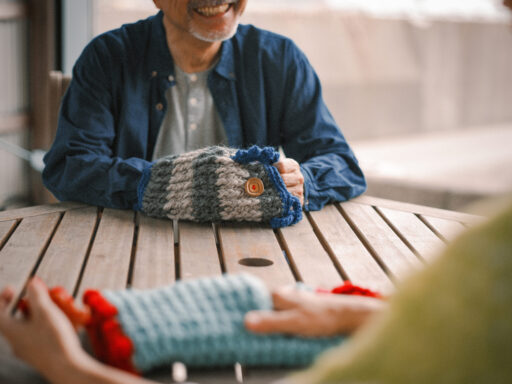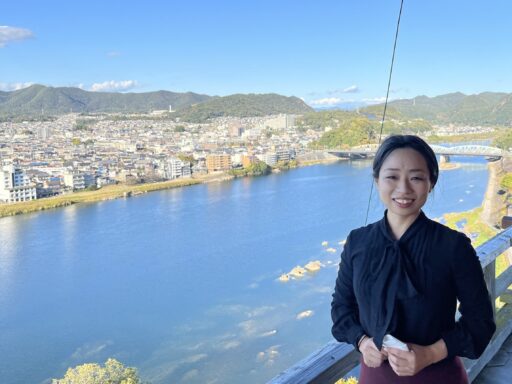JAPAN | Coming back to life! | Shinobu Yamanaka | Living with Dementia – VOICES OF ASIA
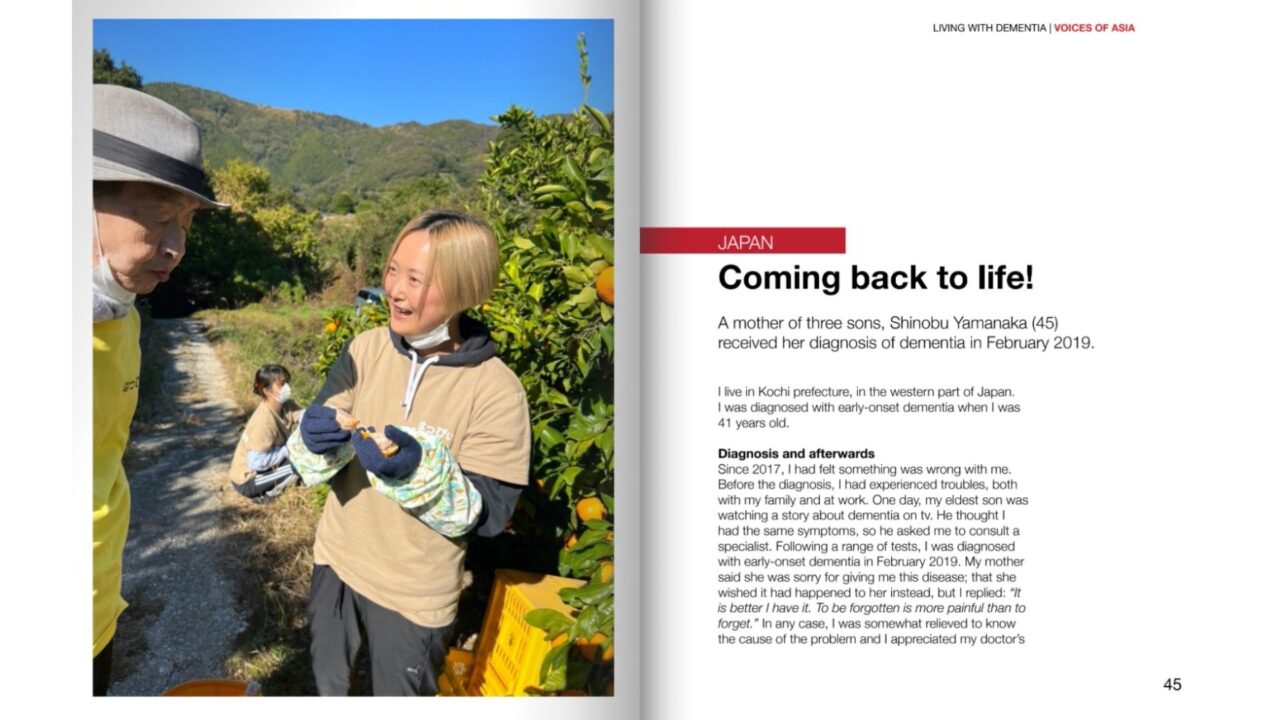
A mother of three sons, Shinobu Yamanaka (45) received her diagnosis of dementia in February 2019.
I live in Kochi prefecture, in the western part of Japan. I was diagnosed with early-onset dementia when I was 41 years old.
Diagnosis and afterwards
Since 2017, I had felt something was wrong with me. Before the diagnosis, I had experienced troubles, both with my family and at work. One day, my eldest son was watching a story about dementia on tv. He thought I had the same symptoms, so he asked me to consult a specialist. Following a range of tests, I was diagnosed with early-onset dementia in February 2019. My mother said she was sorry for giving me this disease; that she wished it had happened to her instead, but I replied: “It is better I have it. To be forgotten is more painful than to forget. ” In any case, I was somewhat relieved to know the cause of the problem and I appreciated my doctor’s heartfelt encouragement when he gave me his diagnosis. My second-eldest son also encouraged me, sending me the following message: “Don’t yield to the disease.” However, I fell into despair when the only information I could find online about dementia was useless and negative: a ten-year life expectancy… loss of intellect… institutionalisation and so on. How could I ever forget my sons? Does having dementia mean I would be sent to an institution? Because of these rising fears, my depression got worse and worse, and I kept to my bed. What could I do to raise my kids as a single mother? How could I pay for their school fees? When my son said he had given up university, I felt guilty and miserable. Crying at midnight, staring at my life insurance card, I thought of suicide. Though the people surrounding me at the time were kind, I was not yet ready to consult with them about this hardship. I shut my mind.
Coming back to life
Despite the amount of hopeless information on the internet, there were some positives. I found Mr Tomofumi Tanno. He was living with dementia and enthusiastically providing others with peer support. In reply to my Facebook message, he sent me a book. Without it, I would not be able to smile or live such a positive life. In fact, just thinking of him makes me smile and strengthens my resolve to continue living this way. Having become positive about the future, in 2021 I visited DAYS BLG in Hachioji city, a suburb of Tokyo. This daycare centre is jointly managed by a corporation of staff and people living with dementia and the focus was on creating work opportunities. I joined the activities and was impressed by the equal relationship between the service users and service providers. Highly motivated members of DAYS BLG actively participate in the community in a very positive way. This inspired me to start a similar movement in my hometown of Kochi.
Opening the HAPPY Daycare Centre
I decided to establish a daycare centre in order to make my town a Dementia-Friendly Community. However, there were many challenges in starting it, unsurprisingly because I myself am a person living with dementia. I explained the vision and mission of the proposed daycare centre to many people and asked experts, such as legal professionals, for their help and collaboration. Finally, in 2022, the new daycare centre was opened. I named it HAPPY, hoping that it would be a place where no one felt alone. I am grateful to all of you who shared my thoughts and worked hard with me to make this possible. HAPPY differs from other daycare centres, where users only receive services. In the first instance, we refer to people who join HAPPY as “members” not “service users”. We also have contracts with local industries, such as farms, automobile dealers, building custodial companies, etc. We get paid for our work and we pass this on to our members as salary. After all, work and social inclusion are basic human rights. An essential role of HAPPY is to make members’ wishes come true. For example, when one member was able to buy a Christmas present for his wife and able to write her a “Thank you” message, his wish had come true. Furthermore, his wife was deeply moved when she received this gift and saw her husband’s words to her.
Establishing a friendly community for everyone
Since I started HAPPY, I began to understand the feelings of people willing to help others like me who need support. As a person living with dementia, I often said that I was embarrassed when I am asked by someone how they could help, or what support I require. I am sorry about that because there are days when, at HAPPY I myself ask someone with dementia these very same questions, because I want to get to know them. I also realise that people were asking me lots of questions back then because they were trying to support me. In other words, I understand both the feelings of people needing help and the people willing to support them. I want to build a friendly community for everyone by valuing people’s feelings on both sides. Of course, the members and I face challenges day upon day. However, our activities give us energy and hope. I believe we can continue to make this happen by collaborating with our members and other people who share our values. Furthermore, I am sure that the activities at HAPPY will lead to people feeling comfortable enough to ask for “Help” when they need it.
A message to people living with dementia and all others
Many people living with dementia might think they have to give up their wishes because of the disease. However, many possibilities remain if they collaborate with people who can share in their vision. I learnt this from my own experience, opening and running HAPPY. Our story continues and it involves all the people in my community, regardless of whether they are living with or without dementia. Let’s remain positive and write a heartwarming story of living well with dementia – together. I stand for you and with you!
This article was originally published in “Living with Dementia : Voice of Asia (English)“.

